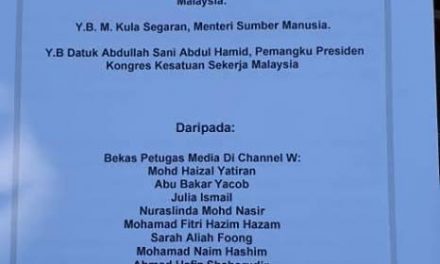KUALA LUMPUR | A former employee of a petroleum company was awarded compensation of RM540,000 after the Industrial Court ruled that her dismissal on grounds of being a contract employee was wrongly conceived.
Industrial Court chairman Bernard John Kanny said after considering the evidence at hand that Nor Aini Sabil was in fact a permanent employee of Murphy Sarawak Oil Co Ltd.
Advertisement:
https://www.facebook.com/HRDFtrainings.my/videos/2468361326779330/
“The dismissal of the claimant on grounds of retrenchment was unfounded as she was a permanent staff,” he said in his 30-page award released last week.
Nor Aini was informed by her employer in July 2015 that she would be retrenched on grounds of redundancy. She was urged to accept a mutual separation agreement.
Her last drawn monthly basic salary was RM14,929, with a fixed allowance of RM1,200.
Kanny said Nor Aini, represented by S Muhendran and Chong Wan Loo, was employed as a document control coordinator for four years.
She subsequently worked as a project coordinator for three years and a maintenance contract supervisor for three and a half years from 2005.
“It is clear to this court that the employment status of the claimant was an ordinary employment that was dressed up in the form of a succession of fixed-term contracts,” Kanny said.
He said he found that each renewal had taken place automatically before the expiration of contract with no break in Nor Aini’s service.
“The rendering of service by the claimant to the business was in no manner interrupted,” he added.
He also noted that Nor Aini was granted pilgrimage leave, a benefit only available to permanent employees, in particular those who have served for five continuous years.
He said the court found no reduction, diminution or cessation of Nor Aini’s responsibilities or functions.
He said her duties were carried out by three junior employees after her termination, which was done in bad faith.
“There was no redundancy which justified the claimant’s dismissal,” he said, adding that the retrenchment was done in an unfair manner.
Kanny said in carrying out retrenchment exercises, employers must comply with the “last in, first out” principle of selection.
He said although Nor Aini had pleaded for reinstatement with full back wages, the court had decided that this was not appropriate to the circumstances of the case.
Nor Aini was awarded back wages and compensation amounting to RM541,068.29 in lieu of reinstatement, following the deduction of RM7,317.71 paid to her in retrenchment benefits.








